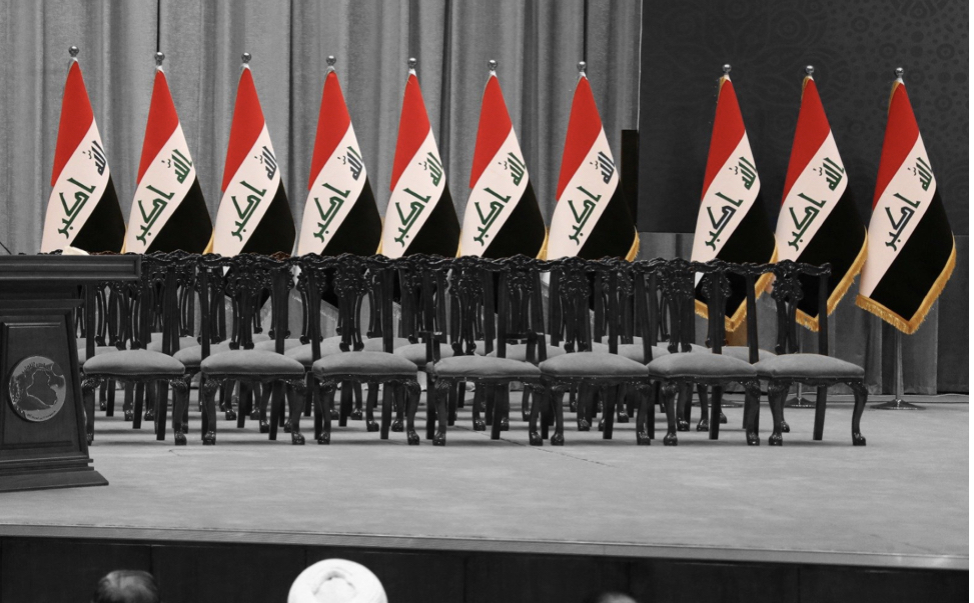A new record.. More than 230 days of a government-less Iraq and the 2010 scenario is repeated

Shafaq News / Iraq has defied political axioms, with disagreements between blocs and political forces delaying the formation of a new government to succeed Mustafa al-Kadhimi's two-year-old government, which fell out of power following the October 10, 2021 elections.
Observers say that the calculation procedure for the time spent under the caretaker government is part of unnecessary procrastination as the country faces a complex series of crises and challenges that necessitate a quick formation of the government, selection of the president, and revitalization of parliamentary work. That is the least Iraqis can hope for, regardless of whether they voted in the recent elections or not.
If the calculations are correct, Iraq will have surpassed 230 days since the closing of the ballot boxes on October 10. If, on November 30, 2021, 50 days after the elections, it had been more than 180 days since the High Electoral Commission announced the final results, after hundreds of appeals against preliminary results had been resolved and questionable votes had been manually recounted.
But it is well established that more than 230 days have passed since the polls closed, which means that the "record" of this political vacuum, which was recorded after the March 7, 2010 elections, led to the formation of Nouri al-Maliki's so-called "second government".
According to observers, "breaking" that figure is not a cause for celebration because it is not about achieving a record success at the time of a project or plan, and what happened in 2010 is remembered as similar to the "record" set in the Netherlands, where the government was formed after a 271-days political impasse.
However, what happened politically in 2010 appears to be similar to what is happening now, given that those elections 12 years ago resulted in the formation of a new government for Nouri al-Maliki on December 22, which lasted until September 8, 2014.
At that time, Iyad Allawi's coalition won the highest seats, defeating its main opponent Nouri al-Maliki, who was later able, through regional maneuvers, compromises, an Iranian sponsorship, a U.S. approval, and difficult negotiations involving Syria and Hezbollah in Lebanon, to include al-Maliki's allies to form the largest bloc in parliament, thus taking away the right to form a government again, which seems similar to the current political maneuvers and games.
While the rivalry between the "Iraqia" and "State of Law" blocs was intense, with the first winning the most votes, "Iraqia" said its victory gave it the right to form a government.
The "state of law" responded by emphasizing that the Federal Supreme Court issued a decision interpreted by the bloc as giving it the right to form, given that it is the largest Parliamentary bloc, and that is why the "State of Law" moved quickly to conclude special alliances with the Iraqi National Coalition."
As it stands, relations between Muqtada al-Sadr and Nouri al-Maliki are strained, and the fallout from al-Maliki's military operation against Sadrist militants known as the "Battle of Basra" in 2008 is still fresh in everyone's minds.
Muqtada al-Sadr also opposed al-Maliki's re-election to form a second government for eight months, until multifaceted regional mediation, particularly from Iran, resulting in a meeting in Qom in 2011 to reach a settlement, where al-Sadr was a resident of Iran until he returned to his stronghold in al-Hanana in Najaf in 2011.
"They want to leave and hand over the country to the Iranians. We are a failed state now, an Iranian colony," the New Yorker newspaper quoted Allawi as saying at the time, expressing his displeasure at Washington's abandonment and withdrawal of support.
However, the relatively peaceful relations between al-Sadr and al-Maliki have not reached a point of harmony; and the Sadrists have moved more than once in corruption-related files and attempts to question al-Maliki within parliament.
Furthermore, when ISIS took over large swaths of Iraq in 2014, al-Sadr was one of the most vocal objectors to al-Maliki's mandate to form a third government.
Now, Iraqis are awaiting the results of the ongoing political maneuvers, especially between the "Coordination Framework" forces that include al-Maliki in their leadership, and the so-called "Trilateral Alliance" that includes al-Sadr.
Ironically, more than 230 days after the polls closed, Belgium still holds the "record" for the longest governmentless period of more than 500 days.
Therefore, millions of Iraqis have the right to wonder whether their fate will continue to be counted in record shameful numbers.
Exclusive to Shafaq News agency.





